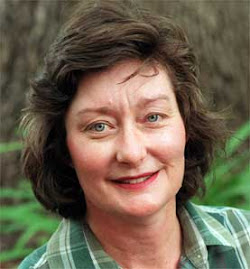The Age
24 May 2009
by Amanda Gearing
CLIMATE change has already claimed the lives of many thousands of people — and millions more are at risk — as severe weather events rage around the world and staple food crops are wiped out, meteorologists have told a world climate conference.
More extremes of climate are bringing deadly floods, hurricanes, cyclones, droughts and ocean surges that are destroying vital food crops, leading to mass starvation in some countries.
The agro-meteorology chief of the World Meteorological Organisation, Dr Mannava Sivakumar, says debate about whether climate change is occurring or not is obsolete, as the effects of extreme weather incidents are clearly being felt across the globe.
As well as crop failures in both hemispheres, delegates to the conference in Queensland last week were told other examples of climate change included:
-Extreme rainfall leading to deadly flooding in India, as well as more frequent heatwaves over 46 degrees causing mass deaths of people and livestock.
-Severe cyclones in the Pacific Islands, including Samoa, the Cook Islands, Fiji and the Solomon Islands, have resulted in sea surges completely submerging some islands, forcing villagers to climb palm trees to save themselves.
-Frequent typhoons in Korea are dumping flooding rains that destroy rice crops, the country's main food supply.
-Rising temperatures in the south of France could devastate the winemaking regions of Champagne, Burgundy and Bordeaux.
-Drought and extreme flooding are wreaking havoc on crops in Ethiopia and other African countries, leading to mass starvation.
"Climate change impacts are going to be most serious in the semi-arid and arid tropics of the world," Dr Sivakumar said. "And unfortunately these are also the regions where the poorest of the poor countries of the world are located."
Dr Sivakumar, who first detected temperature rises in west African countries in 1984 by analysing climate data, says it is the failure of food crops triggered by the effects of global warming that poses the most pressing challenge to global food security.
In Australia, rice production has fallen by at least 90 per cent in the past five to seven years after decades of drought, and in other countries, many of them among the poorest of the world, rice and wheat crops have been completely wiped out by cyclones or droughts.
"If you look at these countries and ask the question, 'how are they going to feed their people in the next 20 to 30 years?', you have to address a number of issues at the same time (including poor governance as well as climate change)," Dr Sivakumar said.
He said there was no longer a question that humans had contributed to global warming; the question now was how they were going to feed the growing population as the effects of climate change ricocheted around the world.
"The International Panel on Climate Change's last four reports have shown … that we are changing the climate because of human activities, which will bring increased temperatures of 2 to 4.5 degrees centigrade to the global average and reduced rain in many parts of the world, especially in the semi-arid tropics, and increased rainfall in some parts," he said.
Dr Sivakumar said the world's population was expected to exceed 9 billion by 2025, presenting a food supply crisis for the world's governments and farmers — and climate change would make the task even more difficult. "It's a double whammy," he said.
Tanzania's principal agro-meteorologist, Deusdedit Kashasha, said more rainfall seasons had been failing since the 1980s, leaving families whose only food comes from subsistence farming to rely on government food hand-outs to survive.
Flaviana Hilario, chief of the Philippines weather service's atmospheric, geophysical and astronomical services administration, said the country had recently experienced its most severe cyclone, with deadly, destructive wind speeds of up to 320km/h.
"So far this is the highest. We will see whether in the future this will be the norm or if this was a single event," she said.
Dr Sivakumar said the sharing of information between the delegates — meteorologists and climatologists representing 187 countries — would help nations to make their food supplies more sustainable.
Better communication services must be developed so farmers can access information to help them increase crop production, he said.
skip to main |
skip to sidebar

Journalist and Author. I am a reporter and author based in Toowoomba, Queensland. I have worked in Brisbane, Mount Isa, London and Toowoomba where I worked for ten years for the Courier Mail from 1997-2007.

Special Subjects
Science and medicine; climate change; south west Queensland issues and events; people; local industries: broadacre cropping, grazing, wine-making and wineries; water supply issues.
No comments:
Post a Comment